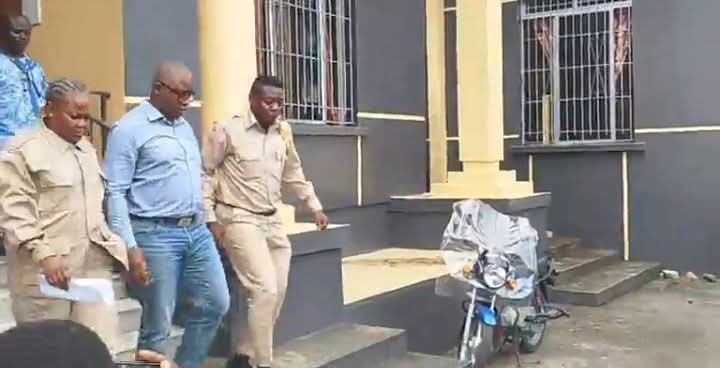The legal saga surrounding former Liberia Telecommunications Authority (LTA) chairperson Abdullah Kamara took a dramatic turn with his re-arrest and subsequent re-indictment on charges of corruption involving nearly US$3.6 million in government funds. This development comes just days after his company, Tarmal, was cleared of the initial charges and follows a complex series of legal maneuvers involving the Supreme Court, the lower Criminal Court ‘C,’ and the Liberia Anti-Corruption Commission (LACC). Kamara’s re-arrest and re-indictment inject renewed uncertainty into a case that has already seen significant back-and-forth between the prosecution and the defense.
Kamara’s legal troubles initially seemed to be resolved when Criminal Court ‘C’ Judge Joe Barkon dismissed the charges against him on August 1, 2025. The prosecution, led by the LACC, attempted to appeal this decision to the Supreme Court, seeking a writ of certiorari that would allow the higher court to review and potentially overturn Judge Barkon’s ruling. However, Associate Justice Jamesetta Howard Wolokollie, presiding in Chambers, denied the state’s request, effectively upholding the lower court’s dismissal. This denial represented a significant victory for Kamara, seemingly bringing an end to the protracted legal battle.
Despite the Supreme Court’s denial of the writ of certiorari, the LACC persisted in its pursuit of Kamara. The state prosecutors secured a new indictment against him through the Montserrado Grand Jury, paving the way for his re-arrest on Tuesday, September 9, 2025. The charges brought against Kamara in the re-indictment are extensive and serious, encompassing theft of property, misapplication of entrusted property, criminal facilitation, criminal solicitation, criminal conspiracy, economic sabotage, misuse of public money and records, illegal disbursement, and expenditure of public money. This comprehensive list of charges indicates the gravity of the allegations and the LACC’s determination to hold Kamara accountable.
The re-arrest itself was swift and decisive. Liberia National Police officers apprehended Kamara and promptly brought him before Criminal Court ‘C,’ now presided over by Judge Ousman F. Feika. The court had issued a writ of arrest for Kamara on August 8, 2025, ordering his immediate detention. While the initial dismissal of charges had granted Kamara a reprieve, the new indictment and subsequent arrest demonstrate the ongoing legal vulnerability he faces. The court documents explicitly commanded the arrest of Kamara, citing the indictment prepared by the Montserrado County Grand Jury.
The re-indictment and subsequent arrest of Kamara raise several crucial questions about the legal process and strategy employed by the prosecution. While the Supreme Court’s denial of the writ of certiorari seemingly affirmed the lower court’s dismissal of the initial charges, the prosecution’s ability to secure a new indictment suggests they may have reformulated their approach, possibly focusing on different aspects of the alleged wrongdoing or presenting new evidence. The exact nature of the new evidence or the revised legal strategy remains unclear, but it is evident that the LACC believes it has a strong enough case to pursue a fresh prosecution. The use of a Grand Jury to secure the re-indictment adds weight to the prosecution’s case, as it indicates that a body of citizens has found sufficient evidence to warrant formal charges.
The case against Abdullah Kamara exemplifies the complexities and challenges inherent in prosecuting high-profile corruption cases. The back-and-forth between the lower court, the Supreme Court, and the prosecution underscores the nuances of legal procedure and the importance of due process. While Kamara initially secured a favorable outcome with the dismissal of the charges, the re-indictment signifies that the legal battle is far from over. The US$3.6 million in alleged government fraud at the heart of this case makes it a matter of significant public interest, and the outcome will likely have significant implications for anti-corruption efforts in Liberia. The case is now set to proceed under Judge Feika, who will have the responsibility of overseeing the trial and ensuring a fair and just outcome based on the evidence presented.














